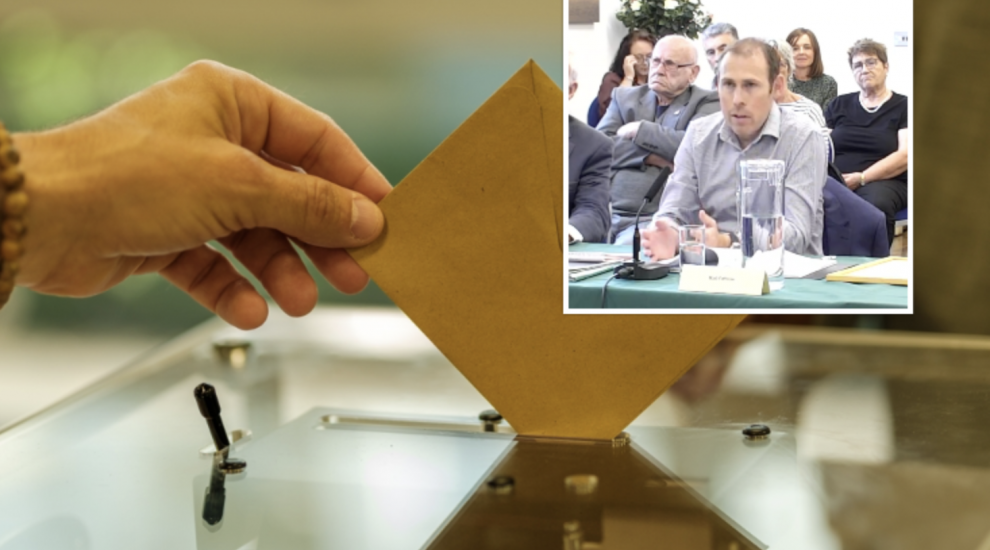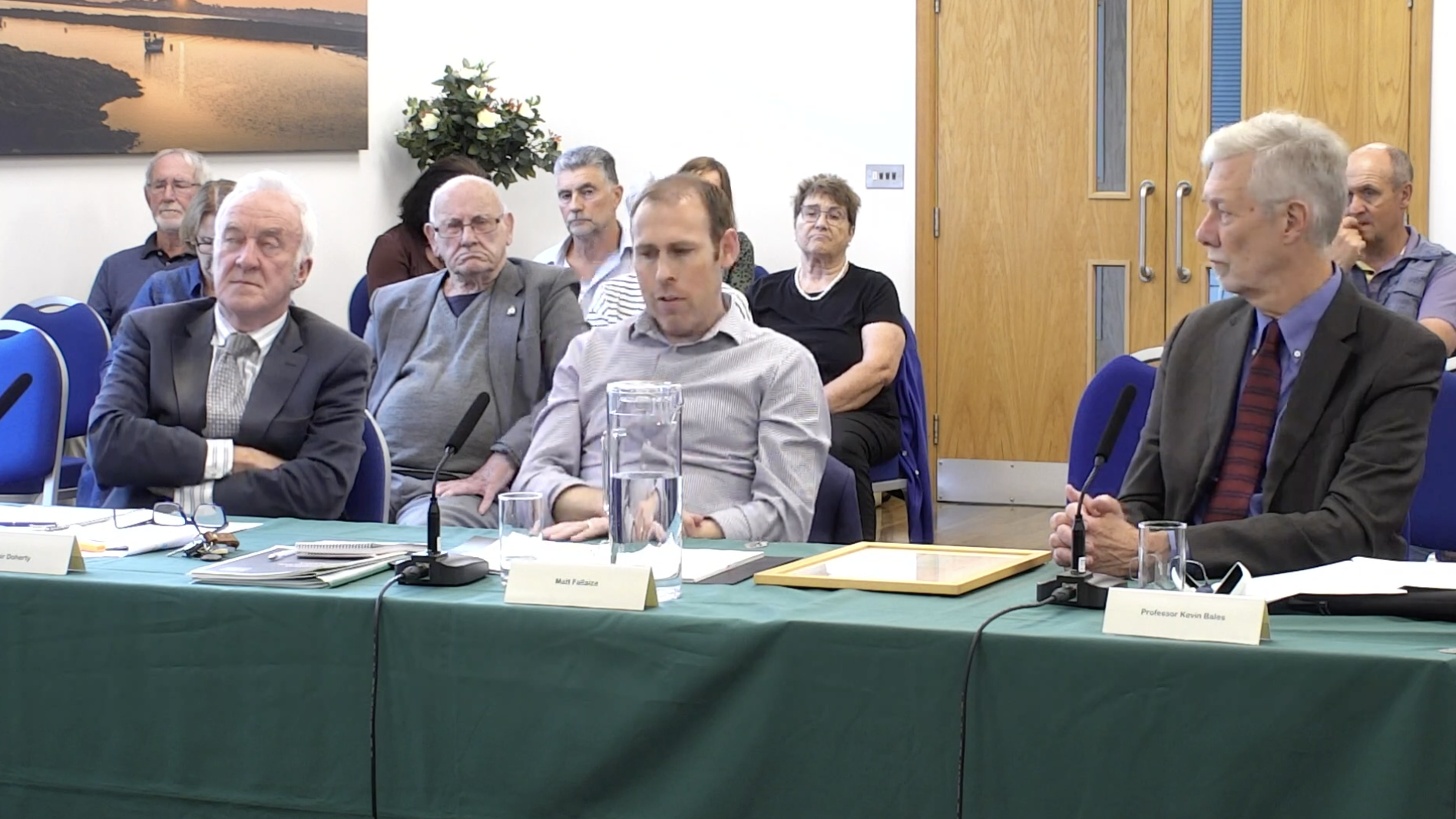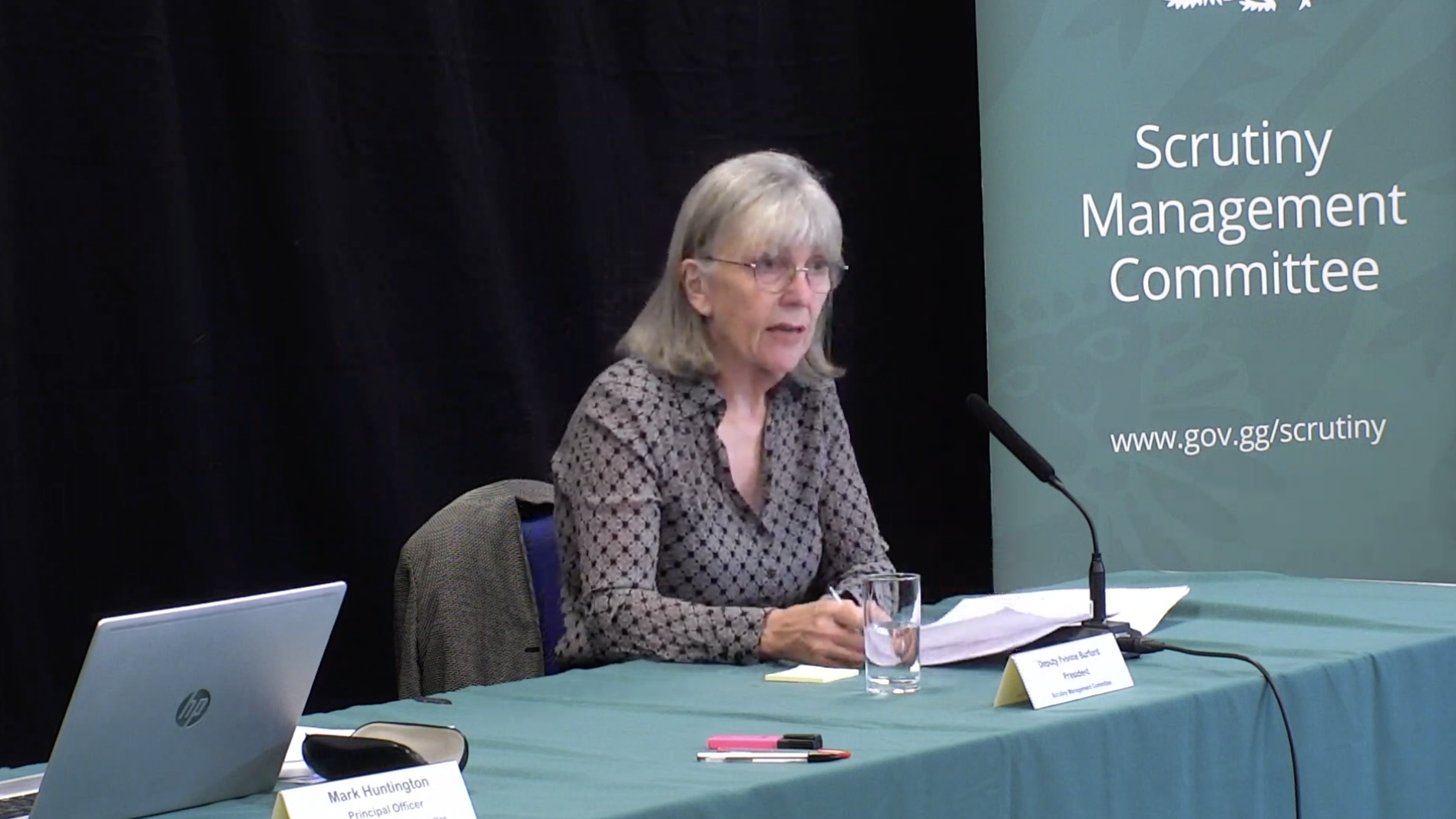


One of the victims of island wide voting has shared his thoughts on the concept, arguing that voters were less informed in 2020 than they would be under the previous district or parish systems we had.
Matt Fallaize - a former deputy with 12 years experience in the States - was on a panel of witnesses giving evidence to a Scrutiny hearing on the success or otherwise of island wide voting yesterday.
Mr Fallaize was flanked by two political experts with Alistair Doherty, former clerk to the UK's House of Commons, and Professor Kevin Bales of the University of Nottingham's School of Politics.
The three men were answering questions posed by Scrutiny President Deputy Yvonne Burford, civil servant Mark Huntingdon and two former deputies - Michelle Le Clerc and Chris Green - in the third of a four part series of sessions discussing island wide voting, which was introduced ahead of Guernsey's general election in 2020.
They were asked specifically to give examples of advantages and disadvantages of island wide voting.

Pictured (l-r): Alistair Doherty; former clerk to the UK's House of Commons, Matt Fallaize; former Deputy, and Professor Kevin Bales of the University of Nottingham's School of Politics.
Mr Fallaize had previously been a 'poll topper' in the Vale, securing the most votes per candidate in the 2016 election making him the 'island wide poll topper' then.
In 2020 he came 85th out of 119 candidates with 3,445 votes - around 10,000 fewer than the poll topper, Gavin St Pier and 3,000 fewer than Carl Meerveld who was elected in 38th and final place.
During his time in the States Mr Fallaize had been President of the States Assembly and Constitution Committee for a term which meant he was actively involved in work prior to the 2018 referendum which led to island wide voting being introduced.
With traditional forms of campaigning such as door knocking in your parish being unfeasible for many in 2020, Mr Fallaize said that affected the outcome.
"I very much got the sense that it was an election being fought on social media, or somewhere away from where the candidates actually were, because you just couldn't have that discourse with the elctorate like you could in the previous system."
Another disadvantage described by Mr Fallaize, Mr Doherty and Professor Bales was around the number of candidates.
The panel also discussed the possibility of reducing the number of votes given to the electorate to prevent people struggling to choose 38 out of the candidates list

Pictured: Deputy Yvonne Burford is the President of the Scrutiny Management Committee.
Professor Bales suggested there could be three or four different ways of doing that, avoiding the issue of people going through a "phonebook" to select their candidates.
"It was unwieldy and overwhelming I think for a lot of people," he said, referring to the 119 strong list of candidates in 2020.
"People have very busy lives, people with small kids, you think of them trying to work their way through these booklets over time and make sense of everything. Time can be hard for a lot of people."
Mr Doherty countered that some people may have said they had too many votes, at 38 each, but he'd be interested to know how many of those same people used each vote and if so, how they decided to choose who they voted for.
"Maybe they were voting for a political party, or maybe they were voting for anybody but supporters of education reform. In any case that's very different to flying blind and voting randomly, and I don't think we know that yet."
Deputy Burford put to the panel that reducing the number of votes each person has will not reduce the number of candidates standing.
Mr Fallaize argued that it could result in people voting for candidates "positively" rather than voting to keep others out.
"...the choices that people are making at elections are reduced to much more simple considerations," he suggested.
"At the last election if you had said 'I don't want two schools and I don't want GST' and you were a reasonable candidate you were almost certain to get in because it lends itself to this checklist election where the only way in which voters are able to compare their choices is to use a small number of criteria on very key issues and I don't think there's a way around that if you present 120 candidates to voters."
This week's two-part Scrutiny hearing is aimed at collating feedback on the success of the first fully island wide election in 2020, ahead of the next scheduled general election in 2025.
1400 people had responded to a survey for the Scrutiny Management Committee, with other witnesses submitting evidence during the second half of this morning's public hearing and more due to speak on Wednesday during a second two-hour discussion.
The two-day Scrutiny hearing started on Monday morning, with a panel of witnesses made up of current and former deputies and douzeniers.
The second session saw contributions from more politicians, campaigners and commentators.
Both the Monday and Wednesday sessions can be watched on YouTube HERE.
Comments
Comments on this story express the views of the commentator only, not Bailiwick Publishing. We are unable to guarantee the accuracy of any of those comments.